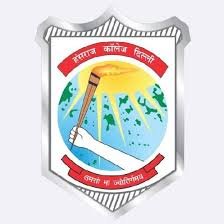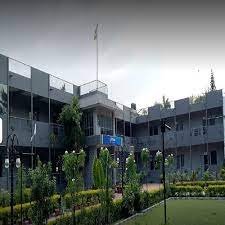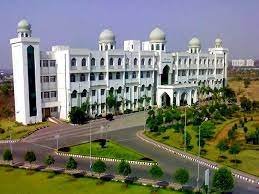A B.Sc. in Life Science opens doors to a wide range of career opportunities and further education options. Graduates can pursue careers in research, healthcare, pharmaceuticals, environmental science, education, and more. Many choose to advance their studies with master's or doctoral degrees
Future Scope & Benefits for B.Sc. in Life Science Course
Life Science, a multifaceted field that explores the intricacies of living organisms and their environments, is at the forefront of scientific discovery. A Bachelor of Science (B.Sc.) in Life Science is a dynamic and versatile program that equips students with a deep understanding of biology, genetics, ecology, and more. In this article, we will delve into the future scope and benefits of pursuing a B.Sc. in Life Science.
Future Scope of a B.Sc. in Life Science
The future scope of a B.Sc. in Life Science is promising as advancements in biology and biotechnology continue. Graduates can anticipate opportunities in research, biotechnology, and pharmaceutical industries. Their expertise in life sciences, genetics, and microbiology will be in high demand for addressing healthcare and environmental challenges, ensuring a dynamic career landscape in various life science fields.
-
Research Opportunities: Life Science graduates have diverse research opportunities in fields such as molecular biology, genetics, microbiology, and ecology. They can contribute to groundbreaking discoveries and advancements in medical science, environmental conservation, and biotechnology.
-
Healthcare and Medicine: The healthcare industry continually requires professionals with expertise in Life Science. Graduates can pursue careers in pharmaceuticals, clinical research, medical writing, or work as laboratory technicians in hospitals and clinics.
-
Biotechnology: With the rapid growth of the biotechnology sector, Life Science graduates are in high demand. They can work on developing new medicines, genetically modified organisms (GMOs), or improving agricultural practices.
-
Environmental Science: Addressing environmental challenges such as climate change, pollution, and conservation is crucial. Life Science graduates can work as environmental consultants, researchers, or conservationists to protect and preserve ecosystems.
-
Teaching and Education: Many B.Sc. graduates choose to become educators, sharing their knowledge with the next generation. They can teach biology and related subjects at schools, colleges, or as private tutors.
-
Genetic Counseling: With advancements in genetics, genetic counselling has emerged as a specialized field. Graduates can work as genetic counsellors, helping individuals understand their genetic predispositions and make informed decisions about their health.
-
Pharmaceutical Sales and Marketing: Graduates can enter the pharmaceutical industry in roles like sales representatives or marketers, promoting and selling pharmaceutical products.
-
Science Communication: As science communicators, Life Science graduates can bridge the gap between scientists and the public. They can work as science writers, journalists, or communicators for museums and science centres.
Benefits of Pursuing a B.Sc. in Life Science
Pursuing a B.Sc. in Life Science offers several benefits. It provides a comprehensive understanding of biology, genetics, and microbiology, fostering critical thinking and laboratory skills. Graduates are well-prepared for careers in research, biotechnology, and healthcare. The program equips them with knowledge and expertise to address pressing issues in biology and the life sciences, ensuring versatile and impactful career opportunities.
-
Interdisciplinary Knowledge: The program provides a broad foundation in various life science disciplines, making graduates versatile and adaptable to different career paths.
-
Scientific Inquiry Skills: Students learn critical thinking, problem-solving, and research skills, which are valuable in any profession.
-
Career Diversity: Life Science graduates have the flexibility to choose from a wide range of careers in healthcare, research, education, and more.
-
Contribution to Society: Many careers in Life Science directly impact human health, the environment, and global challenges, allowing graduates to make a meaningful difference in the world.
-
Personal Growth: The program fosters a deep appreciation for the complexity and diversity of life on Earth, leading to personal growth and a broader perspective on the natural world.
-
Advanced Education: A B.Sc. in Life Science is an excellent foundation for pursuing advanced degrees such as a Master's or Ph.D. in specialized fields like genetics, microbiology, or ecology.
 3 Years
3 Years
 Under Graduate
Under Graduate
 Science
Science
 Full Time
Full Time





















 back
back

